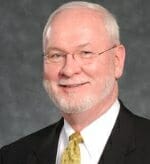6 Powerful Ideas for Building a First-Class Team on Campus
Last updated May 24, 2019Last Updated
May 24, 2019

6 Powerful Ideas for Building a First-Class Team on Campus
Last updated May 24, 2019Table of Contents
“To build a high performing team is a daunting and noble task, and such teams are as rare as blue diamonds. This paper offers six practical strategies.”
Overview
The silo mentality that often exists on our campuses often limits our collective actions, and creates redundancy and replication. Given shrinking resources and the rapid pace of change, the siloed approach to team building and decision making is neither strategic nor feasible. We must work collaboratively to utilize the collective talents of our campus stakeholders. And learning to build high performing teams is one of the most effective ways we can meet the many challenges that confront us.
If a senior leader can build a stellar team, the organizational leverage that can be achieved is powerful and can be a game changer for a campus. In this scenario:
- Stakeholders understand that cross-boundary collaboration is expected and supported by the actions of the senior team, because they model the way.
- Campuses are able to solve complex challenges because people work together to manage these challenges.
- People share resources, ideas, attention and effort, recognizing that the team, not just some individuals on it, really matter in serving the mission and vision of their campus.
We have had the opportunity to work with scores of senior teams in higher education. Almost always, these teams were comprised of highly intelligent, dedicated, honest, and mission-driven individuals. But few of them ever became a first class team.
When you witness a high performing senior team being transparent with each other, asking for help, dealing with conflict effectively, and listening carefully to each other, it is something you never forget. We need more of this type of senior team on our campuses if we are to deal effectively with the complex and adaptive challenges facing higher education.
This informal paper is an attempt to explore how a leader can build a great team and is informed by the research on high performing teams and our own experience with great teams on the campuses we worked on over the past twenty-five plus years. We have been interested in how excellent teams actually function and have recently written about them. There are a lot of prevalent “myths” about teams (see the paper for examples) and we hope to share with you the “realities” about building and creating a stellar team.
This paper will examine:
- What did Google learn about high-performing teams?
- Understanding each team member’s gifts and strengths
- Clarifying the decision rules
- Establishing team norms
- Conducting an After Action Review (AAR)
- Managing team transitions
- Conducting meaningful conversations



